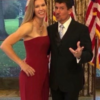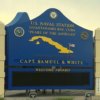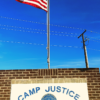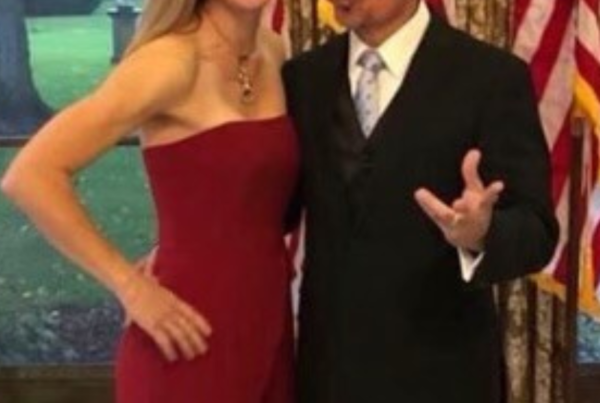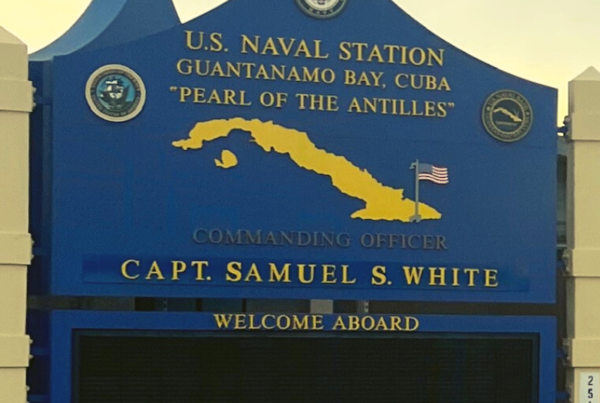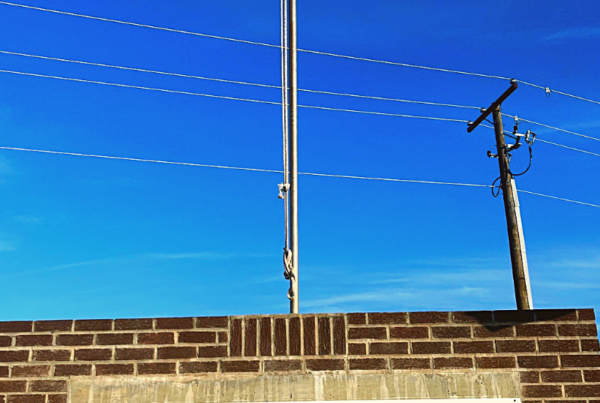BAGHDAD, Iraq – Every conflict, every fighting faction, and every enemy has its heroes – the locals whose hands are calloused from years of wielding heavy rifles through the sunburnt desert, who preach religious doctrine to keep the cadre upbeat, and who vow from dusk to dawn to expunge every American from their country’s bloodstained soil.
For many in war-torn Iraq, that individual is Kataib Sayyid al-Shuhada, with whom his legions of followers refer to simply as “Sheikh Kataib.” At 50 years of age, he is the face of the Iran-backed militia group (although I am forewarned not to call them militias), titled as Master of Martyr Battalions and known locally as Kata’ib Sayyid al-Shuhada (KSS).
Amid the protracted war against the Sunni-dominant ISIS terror group, colloquially termed Daesh, the KSS was folded into an umbrella of the Baghdad government’s Popular Mobilization Forces (PMF), referred to as Ḥashd ash-Shaʿbī, serving as the government’s 14th Brigade.
Donning a form-fitting grey suit contrasted by a baseball cap and trimmed beard peppered white, Kataib makes no secret of his faith and allegiances.
“We have no problem saying that we have relations with Iran. We receive support from Iran. We have relations with them. We have joint security interests,” Kataib tells me without hesitation one sweltering hot afternoon in Baghdad.
It is a source of pride centered on ridding Iraq of an American footprint despite the years of blood and trillions of dollars dedicated to building a strong and democratic nation.
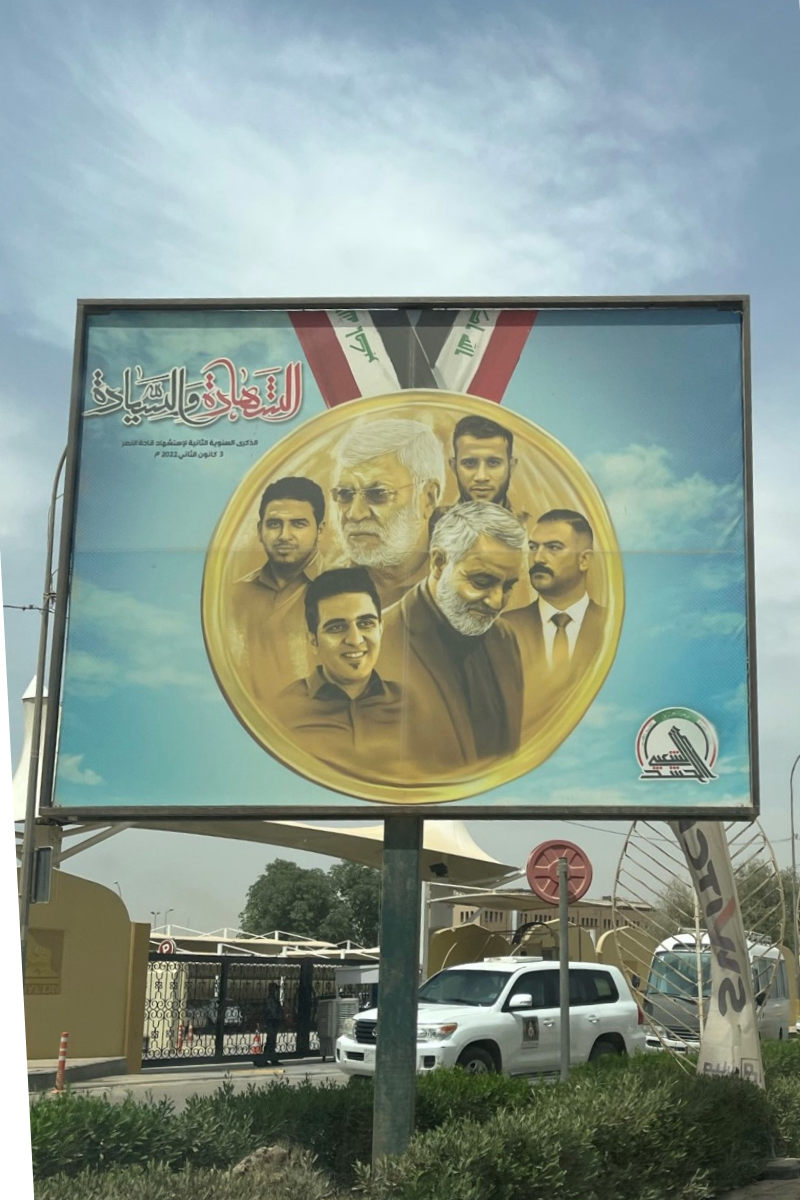
“Originally, it wasn’t about money. It is about fighting for our rights,” he continues, kickstarting a passionate monologue about why his brigade is especially strong. “We always get continuous ideology feeding. Even Americans think of us as one of the most dangerous because we are strong people. We are nationalists.”
Although all official members are Iraqi, KSS has extended its fighting forces beyond borders in backing Tehran’s Shia resistance in the Middle East – from Syria to battle alongside Bashar al-Assad’s troops and Yemen to bolster the Shia-dominant Houthi rebels.
But their number one target remains the remnants of the American military in Iraq.
Once part of Kataib Hezbollah, an armed faction formed early in the 2003 U.S. invasion, in-party politicking spawned some top brass a decade later to form their own armed wing named KSS. The group has made no secret of its animosity toward the U.S. ever since.
In 2019, KSS Secretary-General Abu Waala Al Wa’eli pledged to abduct any U.S. civilians in Iraq. Months later, the assemblage was suspected of launching rocket attacks toward the U.S-led Coalition military base, Camp Taji, 17 miles north of Baghdad, which killed two Americans and one British soldier and wounded 14 others. The U.S., under a furious President Donald Trump, set off retaliatory rockets into weapons facilities and a base shared by Kataib Hezbollah and KSS.
Kataib claims that attack was met with quick proclamations from U.S. officials that it was Israel who carried out the operation.
“This was to avoid our retaliation, but I believe it was Israel,” he says, his expression unchanged. “They blew up explosives, but it wasn’t with a missile. Instead, it was this strange blue laser light.”
Then, just weeks into the Biden presidency in the winter of 2021, another slew of U.S. airstrikes slammed KSS facilities along the Iraq-Syria border, marking the first military action taken by the new administration. Four months later, at least four more KSS militants were killed in another U.S drone attack.
Yet the biggest blow and subsequent quest for vengeance have come not from deaths (or, in their words, martyrdom) in their own ranks – but the slaying of Qassim Soleimani, the deceased commander of the Iranian Revolutionary Guard Corps (IRGC) elite branch Quds Force, and arguably the nation’s then top spy commander. Analysts deemed him the most powerful figure outside of the Supreme Leader Ayatollah Ali Khamenei.
“This has affected us a lot,” Kataib stresses. “(Qassim) was our Jihadi Father; he was the faithful Qassim Soleimani. He was a person we loved very much; even his enemies who met him came to love him.”
Kataib’s eyes lowered for a moment as we spoke. It was the only time I saw his stern face crack ever so slightly, not so much in anger as in mourning.
“If there are martyrs in the whole world who deserve respect, it is Qassim and Abu Mahdi al-Muhandis. Even the people of Iraq did not realize their value until they were martyred,” he presses on, gaining momentum. “Qassim would come and say hello to the leaders. But then he also said hello to the cooks and cleaners; he would kiss them. He was a supporter of the oppressed. These men died poor when they could have earned so much.”
Some researchers beg to differ noting many senior figures in the IRGC have amassed great wealth given its domination over key industries in Iran and that Qassim’s ties to the Supreme Leader equated to him being well compensated for his efforts.
In the early hours of January 3, 2020, Qassim Soleimani and the PMF deputy Muhandis made their way through the military side of Baghdad International Airport when a sudden Trump-authorized airstrike propelled the men immediately into the realm of history – for better or for worse, depending on who you ask.
Many say the PMF and Iran’s support was critical to driving out the brutal ISIS group. Yet others in Baghdad quietly extol the assassination believing it severed Tehran’s iron-clad grip on the country paving the way for a more independent Iraq. One official informs me in hushed tones that, “most Iraqis were in favor of this military action,” a sentiment they cannot express publicly for fear of retribution by the PMF.
Others are more candid. On another blazing afternoon, I met Sunni politician Hamid Abid al-Mutalq, a 72-year-old Fallujah native who served for decades as a Commander in Saddam’s Army and has since been a twice-elected member of parliament. He says the slaying, “definitely reduced the role of Iran,” and was a “positive thing” because, “Qassim did not respect the will of the Iraqi people.”
In a somewhat different way, Kataib acknowledges as much. Months after the October 2021 elections, Baghdad has been gripped by in-party bickering and accusations of electoral fraud, with politicians failing to form a cohesive government.
“If he (Qassim) were still here today, there would not be a blockage in forming a government. It would not happen,” he says emphatically. “This assassination was a clever hit by the Americans to bring down the Iraqi structure. By all standards, it was an international crime, and their martyrdom turned the Americans into terrorists.”
The stunning strike, pundits and pontificators at the time feared, would be the beginning of World War III. It wasn’t. PMF heads warn, however, that revenge has not yet begun, with Kataib stressing multiple times that retribution is paramount.
“This made chaos for the PMF. The killing of Muhandis and Soleimani will not pass easily, not even after 10 years. Iran will not let this pass without punishment,” says Ryan al-Kildani, a Christian PMF leader and parliament member.
The streets of Baghdad are deluged with large, billboard-style tributes to the “martyred” commanders – with the infamous Airport Road renamed Muhandis Road in honor of the killed Iraqi. Even the fortified Joint Special Operation Command, which houses a small amount of uniformed U.S. troops is, dotted with memorialized photographs of Muhandis.
In a statement released after the strike, the Pentagon said Soleimani planned attacks on American diplomats and service members, including a December 2019 attack on an Iraqi military base that killed an American contractor. Additionally, the U.S. accused Soleimani of authorizing an attack on the U.S. Embassy in Baghdad scheduled for the week of his assassination. Soleimani is also accused of orchestrating the killings of hundreds of Americans throughout their military operations.
Moreover, Soleimani’s sudden demise raised doubts about whether his successor, Esmail Ghaani, could wield such power and influence. Khamenei asserted in the aftermath that the Quds Force “will be unchanged.”
I asked about Ghaani and his influence inside Iraqi military and religious circles in an attempt to understand the mindset of PMF and resistance leaders to gain a more cohesive grasp on the way they see the world. We are in a quiet, yellow-hued Baghdad restaurant eating fried fish trucked in from the deeply devout, Shia-prevailing southern city of Basra where Kataib is from and still spends half his time as a religious cleric.
“He [Ghaani] doesn’t come as often, and it is not the same,” Kataib admits. “He is a decent person. He has potential. But we like to express it that it is like a difference between a small boat and a big boat.”
Kataib is sitting beside his younger wife, Suhair, a computer engineer from Lebanon cloaked in a bright hijab and fluent in English. She tells me they met a year ago while she was training other engineers on assignment for her company and that it is a true love story unlike the arranged marriages of times past. The couple married three months ago, have no children together, and emphasize that they are simply enjoying their new lives together.
I canvassed the topic of how far Iraq has come since the Saddam era, and Kataib admits that we would not be having this conversation if the authoritarian leader was still around. The KSS strongman explains that he took part in the 1991 uprising against Saddam but fled to a displacement camp in the arid desert of Saudi Arabia to avoid arrest for over 13 years.
“I refused to accept asylum in another country because I had another goal. The Saudi intelligence started following me around the camp,” Kataib recalls. “So, I escaped there, fled to Jordan and back into Iraq.”
That was August of 2003, five months into the shock and awe U.S. invasion he described as hell. With Saddam on the run and the Ba’ath party dismantled, Kataib took shelter in the slightly more peaceful Nasiriyah on the banks of the Euphrates.
“We defended our freedom once we got it,” he contends. “Ever since, we have been defending ourselves against terrorism.”
Kataib tells me with a wry smile that the membership numbers for PMF are “strictly confidential.” However, it is estimated that its total strength exceeds 100,000, with KSS making up a substantial portion of dozens of battle-hardened forces from the Shia-dominated south. Kataib underscores they are young, patriotic, and religious. As for their supporters, he concludes they are too large to be counted.
In a jarring irony, Kataib breezily speaks of the “Abraham Tanks” used by the PMF, courtesy of the U.S. taxpayer. Yet throughout the 2014-2018 fight against ISIS, which at one point controlled more than a third of Iraq, U.S. officials denied the PMF had access to any American equipment issued to the Iraqi Forces. Kataib also points out that when ISIS initially stormed into Iraq, neighboring Iran was the first country to come to their aid, given that Obama pulled all U.S. troops out at the end of 2011. Still, that same outcome is what he is gunning for again.
According to official agreements between Baghdad and Washington, all U.S. troops were supposed to withdraw from the country by December 31. Given that a U.S. base still survives on the edges of the Kurdish Regional Government-controlled northern city of Erbil, that has not quite been the case. The base has come under fire in recent months, amplified by a steady spate of formal threats by “resistance” forces that they are ready to “dismember the occupation.”
Without a proper Iraqi government, ISIS could take advantage of the chaos and regroup in the Sunni-dominant western pockets around Ramadi and Fallujah, despite being territorially defeated five years ago.
Kataib does not dismiss the risks, noting that the terrorist outfit uses sleeper cells and guerilla-style attacks.
A fresh operation against the terrorists ignited in March. Military personnel claimed that 19 ISIS hideouts, six tunnels and an array of weapons stockpiles stuffed with RBG7 launchers and Katyusha rockets were destroyed.
Nevertheless, from Kataib’s staunch view, this revival is, of course, the work of the Americans.
“ISIS operations now don’t need high funds, and the Americans support them with logistics and transportation. Two weeks ago, we had a tight plan to surround the enemy in Ramadi, only to find out Americans had taken out the ISIS in helicopters,” he claims. “I will give you a secret. America wants to keep the Shia down, and now they mostly want gas, especially since the Russian war in Ukraine.”
Similarly, the prowess of Washington is to blame for Russia’s war inside Ukraine. Kataib asserts the Ukrainians, not the Russians, are forcing innocent Syrians to go to the frontlines and face death on their behalf.
Oddly, this is a sentiment I saw across much of Baghdad with many reciting Moscow propaganda lines such as NATO expansion and bioweapons labs as key reasons why Putin needed to act. If anyone could empathize with the pain of invasion one would think it would be the Iraqis. It’s a potent testament to the reach of Putin’s propaganda.
Even Tashfeen Ibrahim Saqeq, the Joint Operations Command Representative of Iraq, who stresses that his relationship with America is “excellent” seems to doubt the narrative that Ukraine was unjustly invaded.
It is only when I asked if Iraq would be willing to hand over a wide area of territory to the likes of Syria or Iran if they, hypothetically, launched an invasion under the guise of ending further bloodshed that he nodded with some sliver of acknowledgement.
Definitely not, Tashfeen surmises. Iraq would not surrender its land.
But as something of a savior to all Shia across the globe, Kataib expresses concern over the Taliban takeover in Afghanistan, reiterating that the conservative Sunni leaders will “reapply all their former laws” from their brutal 1990s reign. He does not doubt that the Talibs will oppress the Shia minority and that Iraq is also grappling with a surge in illicit drug use, which Kataib attributes to the Taliban’s cultivation of poppy plants.
That brought us to the pharmaceutical issue of the COVID-19 vaccines in which Kataib says he refuses to get the jab.
“Most officials don’t get the real vaccine. We call it the German injection because in World War I, when doctors would run out of anesthesia, they just gave them a needle of sterilized water,” he quipped. “People who understand what is going on in the world are now called crazy.”
His wife, Suhair, has opted for a different take.
“I trust the Russian vaccine, Sputnik, the most,” she pipes up. “I think it’s the only one that can be trusted.”

